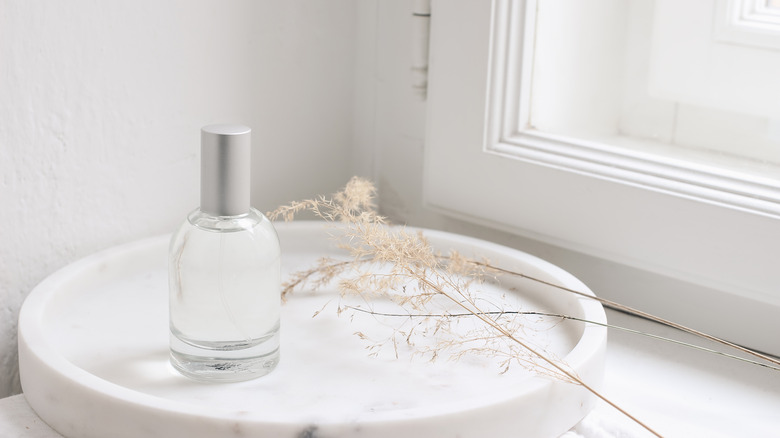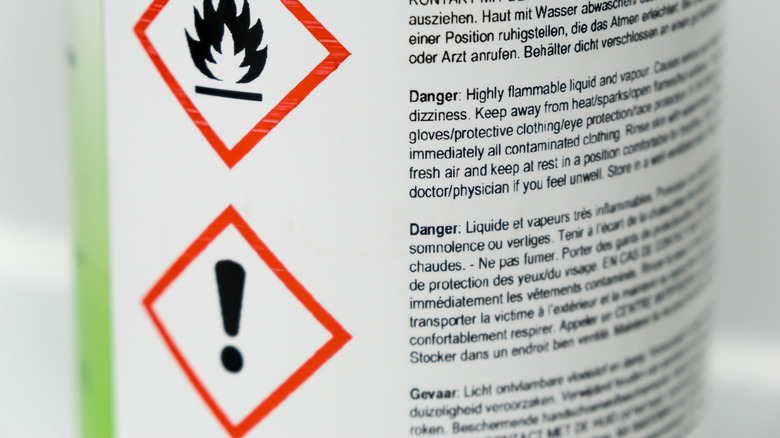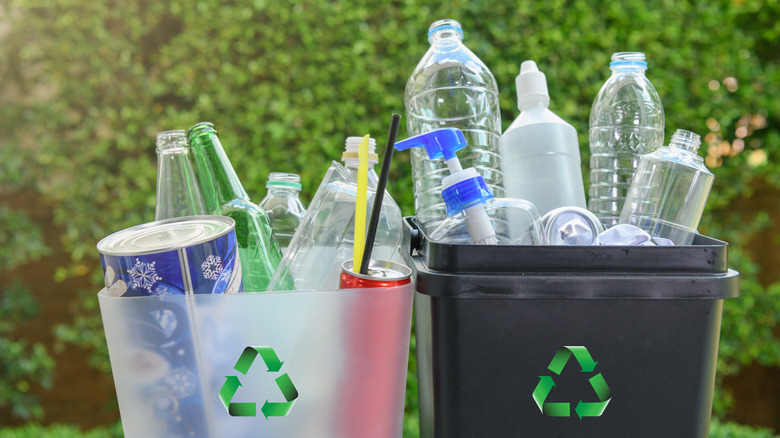Here's What Happens When You Put Perfume In Your Toilet
The internet is teeming with cleaning hacks that claim to make even the most tedious of household tasks easier. But, that doesn't necessarily mean that they work — just look at how that fabric softener fad turned out. Slimy residue and damaged pipes, yikes!
Even so, if you're running low on supplies, time, or both, a hack could come in handy. Take white vinegar, for example. According to Better Homes & Gardens, white vinegar can be used to clean just about anything including your floors, dirty sheet pans, and fridge. What's more? White vinegar can also be used to rid your garbage disposal of lingering odors without harming your pipes.
Certain liquids, however, are not as safe or forgiving. Paint, oil, cooking fat or grease, and even some cleaning agents (including bleach) can do more harm than good — and not just to your plumbing, but to the environment as well. Ironically enough, when it comes to the toilet, perfume (or eau de toilette) isn't a great contender either. Read on to learn more about what happens when you put perfume in your toilet.
Perfume, cologne, and aftershave are considered hazardous
The Environmental Protection Agency (EPA) considers any product that can "catch fire, react, or explode under certain circumstances, or that are corrosive or toxic" as hazardous waste. Most, if not all, perfume, cologne, and fragrances have varying levels of flammable ingredients — with the most common being ethyl alcohol.
The EPA refers to these products as PPCPs or "pharmaceuticals and personal care products," and labels them as "contaminants of emerging concern" or CECs. If disposed of improperly (e.g. poured down the drain or into the toilet), this deadly combination of ingredients has the potential to bypass the water treatment process and end up in our surface and groundwater.
According to a study conducted in the early 2000s, if enough of these chemicals get into the water system they can cause endocrine system disruption in fish, which the U.S. Geological Survey says can lead to reproductive and behavioral disorders, neurological problems, a compromised immune system, and cancer. If other animals (and humans) eat these poisoned fish, the entire ecosystem could collapse.
Eco-friendly ways to dispose of perfume
If you're frantically searching your memory to recollect every liquid or product that you've poured down the drain or flushed down the toilet, stop — that's not going to accomplish anything, though it may give you a migraine.
While there isn't one perfect solution to this problem, there are ways to make less of an impact. One thing you could do is contact your local Household Hazardous Waste facility to see if they'd be willing to take your perfume. You could also donate your unused perfume to a women's shelter, or Grist recommends consolidating your perfume into one container and recycling the empty bottles — this way, you're only throwing out one Molotov cocktail instead of several.
In addition to properly disposing of your old or unused perfume, the EPA suggests buying safer alternatives (e.g. chemicals that have been evaluated via the Safer Choice Program) in the future. Chemicals in this program are color coded and feature one of four shapes: a circle, half-circle, triangle, or square.


